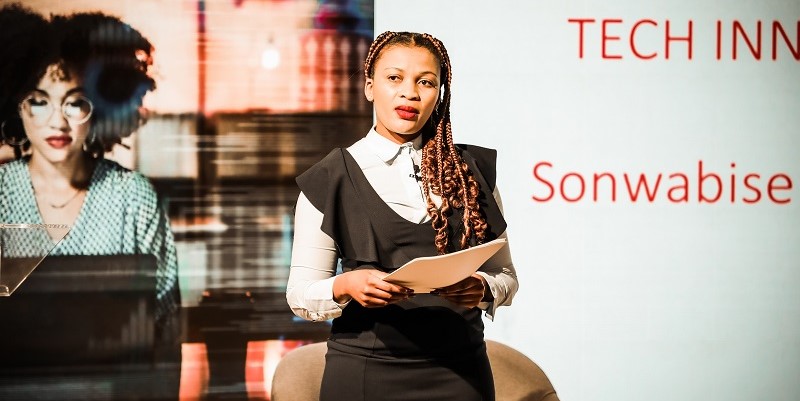Inbox icons, subject line sorcerers, CTA kings – the results are in. The 2025 You Mailed It Awards by Everlytic have crowned their champs, with Old Mutual Rewards and Machine_ taking…
Women in tech at risk of being left behind

Women are the most untapped resource in technology, but they continue to be underrepresented in the field and are at risk of being left behind all together, according to Ayumi Moore Aoki, founder and CEO of international organisation Women in Tech, which aims to bridge the gender gap in technology, and digital agency Social Brain®.
Aoki, a South African now based in France, delivered the keynote address at the Trialogue Business in Society Virtual Conference on 23 June, under the day’s theme, “ICT for gender empowerment”, presented with Vodacom. Aoki pointed out that there were proportionally more women in science, technology, engineering and mathematics (STEM) careers five decades ago than there are today.
Products and services are being developed by men for men, so women’s perspectives are frequently overlooked.
“We must add more women to the technology sector if we want them to play an integral role in the ecosystem and strengthen the whole industry,” she asserted.
Crucially, products and services are being developed by men for men, so women’s perspectives are frequently overlooked. “A good example is the fact that we have about 230-million pregnancies in the world every year, but there are no car seat belts designed for pregnant women. The single largest cause of death in pregnant women is car accidents. Even women who are not pregnant have a 70% higher chance of being injured in a crash than a man because engineers have designed seatbelts as if women are small men. Therefore, women need to be involved in decision-making, design and innovation in every single industry,” Aoki said.
How ICT can support gender empowerment
She indicated that the gender gap in technology prevents women from playing a full role in shaping the future of society. Women currently account for only 23% of the STEM professionals working in SA, with only 17% of those filling leadership positions – and the statistics are worse for women of colour.
For Aoki, the digital acceleration fuelled by the Covid-19 pandemic presents a historic opportunity to involve more women in tech – and she urged companies to empower, upskill and reskill women to prepare them for the future of work. “This will allow them to work remotely, become financially independent, open their businesses and become part of the technology economy,” she said.
Fixing the “leaky pipeline” will involve educating and mentoring girls from an early age and creating a safe, welcoming environment for them that will enable a smooth transition from classroom to the boardroom. “Education is key, but the crucial age is between 12 and 14, which is when young women are most inclined to drop out of STEM,” she said. “It is important for companies to focus on this and provide them with information about possible jobs, as well as give them access to mentorship and role models. Women who are mentored feel more supported and have the personal confidence to achieve their dreams.”
Reskilling women in the workplace is vital, as is providing them with opportunities to climb the career ladder. However, significant barriers exist. “Currently, South African women in the STEM workforce earn 28% less than their male colleagues, which means they have to work for two-and-a-half more hours a day to earn the same salary at the end of the month,” Aoki said. “It is absurd to have such salary disparity and discrimination in the workplace in 2021.”
She concluded by saying that future-proofing job opportunities for women will help to ensure sustainable communities worldwide. “When you empower a woman, you empower a whole community and a whole nation,” she said. “When women rise, we all rise.”
Sessions on the second morning of the three-morning conference went on to explore how ICT can support gender empowerment, whether fighting gender-based violence through tech innovation or helping women farmers gain access to the market.
In her Tri Talk, a TED-style address, Sonwabise Mzinyathi, Senior Manager for global policy and government affairs at international education and advocacy organisation Global Citizen, drew attention to potential tech solutions for mitigating gender-based violence (GBV), such as the GBV engagement platform housed on GovChat, an app that promotes civic engagement. “The zero-rated platform uses the power of data and analytics to curb GBV while allowing users to access support facilities,” Mzinyathi said. The platform is backed by the Department of Communications and Digital Technologies, the Department of Social Development (DSD) and UNICEF.
In the panel discussion, titled “How ICT can support gender empowerment”, Takalani Netshitenzhe, director of external affairs at Vodacom, drew attention to the Gender-Based Violence Command Centre set up by the Vodacom Foundation, in partnership with the DSD, which has also served South Africans in distress during the pandemic.
In the same panel discussion, Baratang Miya, the founder of GirlHYPE, pointed out that it is fruitless for women to enter the tech space if they cannot secure sustainable employment or funding for their businesses. In addition, African women are not encouraged to become content creators. “As Africans, we have been pushed to become tech consumers, and when you are a tech consumer, you make money for others,” she said. “African women should be properly incentivised. There are so many platforms that are taking content from Africa, and we are not getting anything in return.”
Hiring and retaining women in decision-making positions will go a long way towards changing the current dynamic, which still locks a large percentage of women out of STEM and the tech industry. “It is important to inspire our girls – inspire their confidence to build careers that they would not normally consider,” Miya said.
Read more: Egypt’s Trella closes $42-million funding round
Read more: SA agritech releases AI-enabled OmnioFarm to modernise African poultry farming
Featured image: Sonwabise Mzinyathi, Senior Manager, global policy and government affairs, Global Citizen by Janelle Strydom (Supplied)

